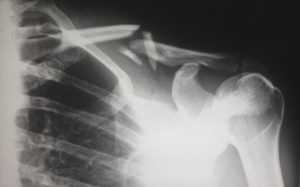Vermont criminal defense looks a little different these days, Burke Law is still providing free consultations over the phone and conducting emergency hearings with the Vermont Superior Court. Our commitment to Vermont criminal defense is only growing stronger.
Being in court, nearly daily, for the last decade has been my life. I advocate for my clients by being on the front lines of criminal defense litigation. We prepare throughly, we show up and we argue hard. The interface is little different during this unprecedented pandemic, but the principles are the same: hard work and a commitment to advocacy.
As I sit at my desk in my home office working on a bail review motion, I am struck by the volume of emails and memos pinging my inbox from other Vermont criminal defense attorneys and advocates. I watch as we pool our resources and collective knowledge to make sure we have all the information we can and that we are getting that information into effective motions to put before the court to help our clients during this difficult time.
Jail or prison is no place to be right now. Social distancing and self isolating don’t work in prison. As a prisoner, your body is the property of the State (with some notable exceptions). You are told where to stand, sit, stay and when to eat and shower. Correctional facilities in Vermont were built, often decades ago, without the necessary structures that would allow the disease progression to flatten or slow.
On March 15, 2020, Dr. Jaimie Meyer provided an assessment of the Vermont Department of Corrections in a memo circulated throughout the criminal law community. Of particular note he wrote:
“DOC’s response to the COVID-19 pandemic is entirely inadequate to protect people in prison and jail in Vermont from being exposed to and infected with COVID-19 and insufficient to prevent a widespread COVID-19 outbreak in DOC’s facilities. Without additional steps, it is likely that people in DOC custody who are infected with COVID-19 will experience high rates of serious illness, including death.
Specifically, the DOC’s response to COVID-19 is insufficient to address the epidemic in the following ways:
- a. Screening protocols. COVID-19 is a virus that spreads easily, primarily from person-to-person through respiratory droplets. It is therefore imperative that people entering closed confinement settings like prisons are properly screened to ensure that they do not bring the virus into the facility. DOC’s current screening protocol consists of asking visitors to self-report their travel history and current symptoms. Visitors are not screened until they are already inside of the facility, and the screening is conducted face-to-face with a staff member who will presumably be entering and exiting the facility throughout the day. People who are ill with COVID-19 and experiencing symptoms are most likely to transmit the virus to others. The virus can be transmitted very efficiently from person to person within 3-6 feet, putting staff and inmates at risk of becoming infected. While the DOC emails suggest a plan for visitors, there is no indication that staff, vendors, or contractors are being adequately screened. There is no indication that new admissions to the prison are being screened on intake into facilities. Moreover, there is no apparent plan in place to isolate or quarantine individuals who screen positive or to manage staffing shortages resulting from correctional officer absenteeism as workers are affected by community spread.
- b. Lack of adequate prevention techniques. DOC does not have the appropriate equipment or protocols to prevent the spread of COVID-19. In addition to universal screening, prevention of COVID-19 requires that people have access to soap, private sinks, and clean water for handwashing or alcohol-based hand sanitizers. Sinks are often shared, and sanitizers are unavailable in the DOC because they contain alcohol. Because the virus can survive on inanimate objects, high-touch surfaces (including doorknobs, light switches, countertops) should be regularly disinfected with bleach. DOC does not have sufficient supplies or cleaning staff to meet these public health recommendations. When containment strategies become overwhelmed, mitigation strategies suggest people need to practice social distancing. Crowded and communal conditions in DOC make social distancing impossible. People in prison have very little personal space and are forced to eat, sleep, live, and work in incredibly close quarters. These general characteristics make prisons susceptible to contagion, as evidenced by the high rates of infectious diseases within carceral settings.
- c. Lack of treatment capacity. Prisons are built to contain people, not diseases. Once someone in the facility becomes ill with COVID-19, the facility is ill- prepared to manage them. Even mild disease requires close monitoring and caregivers and/or healthcare personnel require personal protective equipment (PPE), including gloves, gowns, eye shields, and masks, that are not available in the DOC. Of specific concern regarding COVID-19, DOC’s facilities do not have Airborne Infection Isolation Rooms, or even the capacity to simply isolate infected prisoners in a therapeutic setting. Airborne isolation rooms are specially equipped with negative pressure to allow air flow from outside the room to inside. In contrast, DOC spaces are often poorly ventilated and air flows from inside the room to outside, allowing the virus to spread easily throughout a facility. People who are moderately or severely ill with COVID-19 require hospitalization and management with intravenous fluids, intravenous antibiotics, supplemental oxygen, and in some cases ventilators. DOC is not equipped to identify people who need more intensive medical care or to safely transfer people with COVID- 19 to area hospitals, especially as these hospitals are likely to become overwhelmed with patients.
- d. Limited treatment capacity for people with other chronic health conditions in the setting of a COVID-19 pandemic. A COVID-19 outbreak poses particular risk to people with underlying chronic health conditions, including heart disease, lung disease, liver disease, pregnancy, diabetes, and suppressed immune systems. They have higher risk of becoming infected with COVID-19 if exposed and higher risk of complications and death if infected. People also need continuous access to treatment for their other underlying health conditions, which are at risk during a COVID-19 pandemic in the context of healthcare understaffing and reduced access to medications (if supply chains are interrupted).
The above examples illustrate that DOC is wholly unprepared to address the current COVID-19 pandemic. This lack of preparedness is especially concerning for higher risk individuals, such as older adults and people with chronic illnesses such as diabetes, heart disease, and lung disease. People with these particular characteristics are most susceptible to becoming seriously ill or even dying should they become infected with COVID-19.”
If you are concerned about someone who is incarcerated in Vermont, please contact Burke Law for a free, confidential consultation.








